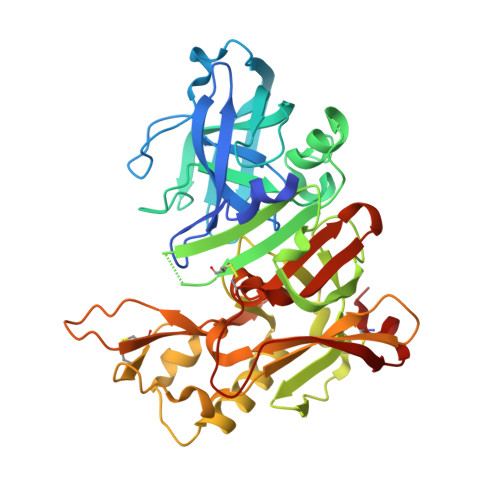Macrocyclic BACE-1 inhibitors acutely reduce Abeta in brain after po application.
Lerchner, A., Machauer, R., Betschart, C., Veenstra, S., Rueeger, H., McCarthy, C., Tintelnot-Blomley, M., Jaton, A.L., Rabe, S., Desrayaud, S., Enz, A., Staufenbiel, M., Paganetti, P., Rondeau, J.M., Neumann, U.(2010) Bioorg Med Chem Lett 20: 603-607
- PubMed: 19963375
- DOI: https://doi.org/10.1016/j.bmcl.2009.11.092
- Primary Citation of Related Structures:
3K5C - PubMed Abstract:
A series of macrocyclic peptidic BACE-1 inhibitors was designed. While potency on BACE-1 was rather high, the first set of compounds showed poor brain permeation and high efflux in the MDRI-MDCK assay. The replacement of the secondary benzylamino group with a phenylcyclopropylamino group maintained potency on BACE-1, while P-glycoprotein-mediated efflux was significantly reduced and brain permeation improved. Several compounds from this series demonstrated acute reduction of Abeta in human APP-wildtype transgenic (APP51/16) mice after oral administration.
Organizational Affiliation:
Novartis Institutes for BioMedicalResearch, Novartis Pharma AG, PO Box, CH 4002, Basel, Switzerland. [email protected]















